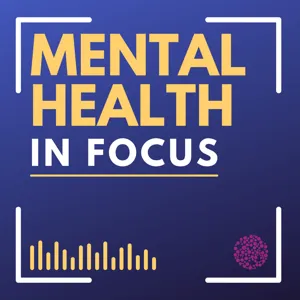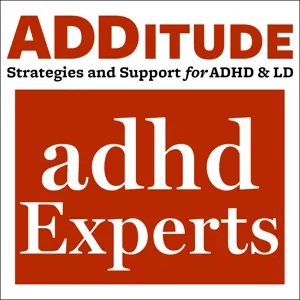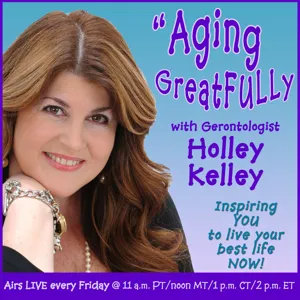Podcast Summary
A Discussion with Eating Disorder Clinician and Researcher Erin Harrop on Supporting People in Larger Bodies: Listening to experts in the field of eating disorders, like Erin Harrop, is essential in understanding the complexities of these illnesses. It is important to acknowledge that mentions of weight and calorie counting can be triggering to some listeners, but by having difficult conversations we can work towards better support for all individuals suffering from eating disorders.
The podcast hosts introduce their guest, Erin Harrop, who is a clinician for eating disorders and researcher in eating disorders for fat people.The hosts warn that there may be mentions of calorie counts and weight which could be triggering to some listeners.The episode may be difficult to listen to because the recording had multiple logistical issues, but they wanted to share Erin's insights with their audience.It is important to listen to people with eating disorders and research in this field to gain a better understanding of the topic.
The Misconceptions About Eating Disorders: Eating disorders can affect people of any age, race, gender, or socioeconomic class regardless of their size. The belief that only thin people can have eating disorders is a myth, as the majority of people with eating disorders are actually fat. These harmful biases around weight and specific communities have hindered our recognition and understanding of eating disorders.
Eating disorders are not limited to one specific group of people.While we may have a preconceived notion of who is affected by eating disorders, the reality is that it can impact people of all ages, races, genders, and socioeconomic classes.Furthermore, the idea that only thin people can have eating disorders is not true.In fact, the majority of people with eating disorders are fat.Even though atypical anorexia has the same manifestation as anorexia, it is considered a different category in the medical field, which can affect a person's ability to get care.The existing biases about fatness and certain communities have limited our understanding and recognition of eating disorders.
The Importance of Proper Diagnosis for Binge Eating Disorder: Overweight individuals may be wrongly diagnosed with binge eating disorder, preventing those who truly suffer from eating disorders from receiving necessary care. Clinicians should actively screen for eating disorders and have strict policies in place to prevent misdiagnosis and ensure that all patients receive the appropriate treatment.
Doctors may diagnose patients with binge eating disorder just because they are overweight, without actually assessing their symptoms.This can prevent people with legitimate eating disorders from receiving the care they need for years, leading to dangerous physical consequences.Studies have shown that bodies react differently to starvation, and not everyone who is starving will display the same physical symptoms, making it even more important for doctors to ask all the necessary questions before making a diagnosis.It is crucial that clinicians actively screen for eating disorders and have strict policies in place to prevent fat folks from being pushed out of seeing themselves as having disorders.
The Impact of Starvation on the Body: Starvation has severe consequences, and it can manifest differently in different bodies. Even those with large bodies may still be experiencing starvation and require medical intervention. Disordered eating can interfere with one's life and may indicate an eating disorder. It is important to be mindful of one's relationship with food, exercise, and body image to avoid negative consequences.
Starvation affects the body in extreme ways, regardless of how it plays out, and starving bodies may look and respond differently.While some people may get sick and lose weight quickly, some may not show physical symptoms until they have lost over half their body weight.Therefore, it is important to recognize that large bodies may still be in a state of starvation and may require medical intervention.When trying to determine if someone's diet is disordered, it is important to see how much it interferes with their life, including their thoughts about food, exercise, and body image.If those thoughts and actions take over, it may indicate an eating disorder.
The limitations of weight as a measure of health for those with eating disorders.: Weight fluctuations may not always indicate an eating disorder, and simple diet and exercise plans may not be effective for those who have adapted their bodies to survive on little food. It's important to recognize other factors that may be affecting individuals' health and well-being.
The focus on weight as a measurement for health can lead to the misdiagnosis and mistreatment of people with eating disorders.Many people with eating disorders may have adapted their bodies to survive on very little food, making it harder to recognize their disorder through weight fluctuations.Additionally, the myths surrounding the simplicity of weight loss and dieting can further contribute to misdiagnosis and mistreatment.It's important to understand that there may be other factors that individuals are thinking about or devoting time and energy to that are not related to their body, food, or exercise.
Society's Impact on Body Image: Erin's Story: Erin's experience shows how dangerous societal messages around body image and weight can be. Early recognition and treatment of eating disorders are crucial to prevent severe consequences. Promoting body positivity and a healthy relationship with food and exercise is essential to prevent harmful habits and behaviors.
Erin's story highlights the dangerous impact of societal messages around body image and weight.From a young age, she absorbed the belief that fat was always bad and that exercise was a must.As a result, she developed obsessive, harmful eating habits that persisted through high school and college.Erin's experience emphasizes the importance of recognizing and addressing eating disorders early on, as delayed treatment can lead to severe consequences.It is crucial to promote body positivity and a healthy relationship with food and exercise to prevent the development of harmful habits and behaviors.
The Misconceptions of Eating Disorders in Larger Bodies: Just because someone is in a larger body, it doesn't mean they aren't struggling with an eating disorder. We should not assume that body size is a determinant of health. It's important to seek professional help and support regardless of body size to overcome a disorder and lead a healthier life.
Erin had an eating disorder and heart condition that caused her to lose her clearance to play rugby and attend school.However, because she was in a larger body at the time, people assumed that she wasn't struggling with an eating disorder.This is a common issue in fat activism work, where what we diagnose as disordered in thin people, we prescribe in fat people and congratulate them instead.Erin eventually found doctors, dietitians, and therapists who helped her through treatment, which was life-changing for her.It was the first time she truly saw how much her body had been affected and how much it needed help.
Body Size Should Not Determine One's Health or Worth.: Health and worth are not linked to one's body size. Eating disorders can affect anyone, regardless of their size or weight. Instead of striving for a specific weight, we should prioritize nourishing and caring for our bodies. It is important to embrace diversity in body size, avoid body shaming, and prioritize nourishing and caring for all people, including larger bodies. Healthcare professionals play a vital role in providing inclusive care.
A person's size is not an indicator of their health or worth.Eating disorders and disordered thinking can affect people of any size, and it is important to focus on nourishing and caring for our bodies rather than striving for a specific size or weight.Diversity in body size is natural, and instead of shaming or stigmatizing larger bodies, we should prioritize all people being nourished and healthy.Healthcare professionals should also be mindful of these biases and work towards providing inclusive care to all patients.
The Importance of Recognizing Weight as a Marker of Health for Individuals with a History of Disordered Eating: Healthcare providers need to understand that weight does not always indicate health, particularly for those with disordered eating backgrounds. Providers must enquire about their patient's history and offer personalized care. More research is essential to understand the experiences and provide effective care to individuals with atypical anorexia.
Doctors and healthcare providers need to recognize that weight is not always an accurate marker of health, especially when it comes to people with a history of disordered eating.An individual's body size may change due to factors beyond their control, such as an eating disorder or recovery from it, and their current weight may represent a significant accomplishment.It's essential for healthcare providers to ask patients about their history of disordered eating and to not assume that everyone has the same background or needs.Research is needed to better understand the experiences of individuals with atypical anorexia and how to provide them with effective care.
A Diverse Study on Eating Disorders and the Struggles of Seeking Medical Help: Eating disorders affect people of all backgrounds and may go undiagnosed due to biases and stereotypes. Seeking medical help can be challenging, and early intervention is important for preventing long-term physical consequences. Understanding the nuances of prevalence rates and proper screening methods is crucial for identifying and treating individuals with eating disorders.
The study followed individuals with eating disorders for a year and found that many of them were diagnosed through the study.The participants filled out scales and were interviewed to track their progress and experiences with their disorder.The study had a diverse sample, including people of color and gender queer or trans individuals.The participants struggled with their disorder for up to 30-40 years and faced physical consequences like missing periods and decreased bone density.Many participants tried to seek medical help but were not successful due to bias and stigma against those who do not fit the stereotypical image of someone with an eating disorder.Prevalence rates vary based on how the disease is defined and screened for.
Understanding Atypical Anorexia and its Unique Diagnostic Criteria: Atypical anorexia is a lesser-known but prevalent form of eating disorder where a person restricts food intake but may not reflect traditional diagnostic criteria. It affects up to 13% of people, but recognition and treatment remain a challenge, particularly for minorities or those with trauma. Hence, a culturally sensitive approach is essential for effective treatment.
Atypical anorexia is a type of eating disorder where a person is restricting their food intake but is not significantly underweight.Studies show that up to 13% of people may meet the diagnostic criteria for this disorder, which is higher than previously thought.However, traditional weight-based criteria used to diagnose anorexia may not apply to those with atypical anorexia.Eating disorders are also common in populations with trauma and cultural or racial minorities may face challenges with treatment if the approach does not align with their cultural practices.
The Problem with Traditional Conceptions of "Healthy" Food and Potential Eating Disorders to Watch out For: The narrow definition of "healthy" food, often influenced by white standards, can lead to harmful eating behaviors, including orthorexia, purging disorder, Adonis complex, and ARFID. It is essential to monitor body and food issues, particularly those prevalent in the gay male community, to promote healthy and nurturing habits.
The traditional conception of "healthy" food is influenced by the whiteness of those making those determinations, leading to limited views of nutritional values and cultural relevance.Orthorexia is a diagnosis that centers on ethical or "clean" eating but can become pathological and restrict a person's ability to nurture themselves.Other potential eating disorders to be aware of include purging disorder, Adonis complex (often seen in young males), and ARFID (Avoidant/Restrictive Feeding Intake Disorder, often seen in children and those averse to certain foods).Body and food issues, like those seen in gay male culture, can be harmful and should be monitored.
Understanding Disordered Eating Triggers and Supporting Your Loved Ones: Disordered eating can have different triggers, and it is important to approach loved ones with care and concern. Older adults may also experience eating disorders during transitional stages of life. Being aware of these triggers and providing support can help those struggling with disordered eating.
Disordered eating can be caused by different triggers, including fears of choking or bad experiences with certain foods.This can lead to limited food intake and emaciated bodies.It is important to approach loved ones with care and concern rather than finger-pointing and assuming they need immediate treatment.Eating disorders can also occur in older adults during transitional stages of life, such as retirement or transitioning to a higher level of care, leading to a bigger impact on their lives.It is important to be aware of these triggers and provide support to those who may be struggling with disordered eating.
Seeking Help for Eating Disorders: A Universal Issue: Eating disorders can affect anyone regardless of age, gender, body type, or ability. It's important to seek help when needed and not wait until retirement to address these issues. Social media can be a helpful resource to find support and connect with academic researchers specializing in this field. Don't be afraid to speak up and seek help.
Everyone, regardless of age, gender, body type or ability, can struggle with eating disorders.It's important to seek help when needed, instead of waiting until retirement or feeling like there isn't time to address these issues.It's also important to remember that these issues are universal and affect a wide range of people.Social media can be a helpful resource to connect with others and find support, including following academic researchers who specialize in this field.And don't worry, if you come across Erin, she may throw a soft sandwich at you, but it's just her old school way of shouting about dietary habits.





